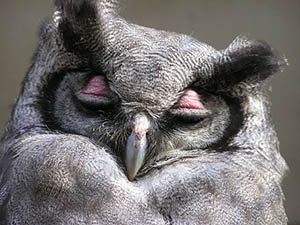- The Wellness Tree1480 Beltress St, Suite 5
Dunedin, FL 34698727-216-6929 Call for appointments & information
- Testimonials
I went to get acupressure because I was past my pregnacy due date, but after the appointment I felt like I was walking on air. I had a lot of energy, my pains were gone, and I realized I needed it more than I really knew. She is understanding and very professional. I would definitely recommend Dr. Graves.
-S.S
Dr. Carrie Johnson is what all physicians should be–knowledgeable, concerned, and caring. She listened and worked with me as an individual. She took me from a life of fear of exacerbating the already constant pain to a life where I can be physically active because the pain can be eliminated by her skilled treatment. Not only did she provide healing with accupuncture to relieve TMJ and radiating nerve pain, she also taught me two simple exercises that extend the effect
... Read more »I am a sr citizen and have been going to Dr. Carrie for a year and am hooked on acupuncture!! She helped me with losing weight and lowering my blood pressure. A great way to stay well and maybe someday all insurance carriers will see to it to cover acupuncture as a medical treatment.
I am a fitness freak: I like cross-country running,cycling, weight lifting, playing basketball and racquetball. But at a certain point I started having severe back pains, spasms and hamstring tightening which sidelined me for quite a while as I tried physical therapy but I did not get immediate relief I was looking for. Then I visited with Dr Carrie Johnson for initial visit and analysis of my condition, at first I was skeptical but Dr Carrie Johnson made me a believer of Acupuncture and Active release techniques. Thanks
... Read more »Let me start by saying I am a certified CrossFit trainer with multiple specialty certifications and I am also a USAW certified Sport Performance Coach. I have dealt with minor injuries before but nothing that forced me to consider some type of rehab or treatment plan. While training high volume or a competition I suffered a low back injury. After months of rest and self prescribed rehab I wasn’t getting back to the shape I wanted and my symptoms persisted.
... Read more » -
Latest Articles:
- • Spring Clean Your Way to Better Health •
- • 5 Healthy Ways to Embrace the Spring Season •
- • Fun Things to do this Spring •
Herb
The Definitive Guide to Chronic Fatigue and Alternative Treatments
 Chronic fatigue syndrome (CFS) is a mysterious condition. There is no known cause. While the symptoms can be debilitating, there is no test to diagnosis it. Women are twice as likely as men to be diagnosed with CFS. And most sufferers are between 25 and 45 years old, although there are cases in childhood and middle age.
Chronic fatigue syndrome (CFS) is a mysterious condition. There is no known cause. While the symptoms can be debilitating, there is no test to diagnosis it. Women are twice as likely as men to be diagnosed with CFS. And most sufferers are between 25 and 45 years old, although there are cases in childhood and middle age.
Some people with CFS live active lives while 25% of the cases are disabled. Sometimes the disease is persistent and other times there is a pattern of relapse and remission. No one knows how many cases there are of CFS because The CFIDS Association of America estimates that fewer than 20 percent of CFS patients in the United States have been properly diagnosed.
CFS has several names. It is called Myalgic Encephalomyelitis (ME), chronic fatigue and chronic fatigue immune dysfunction syndrome (CFIDS). No matter what it is called, the most effective way to manage chronic fatigue is with alternative treatments. continue reading
Chronic Pain? Let's talk.
I seriously have patients ask me, an acupuncturist, if acupuncture works.
My head screams “8 years of schooling, student loans, tons of continuing eduction, a life’s work…. what do you think?!”. I realize, however, what they’re really asking is “Would acupuncture work for me?“.
I also, very often, hear “I tried acupuncture and it didn’t work. I only felt better for a few days/weeks/months before the pain returned”.

Let me touch on the second point, duration of relief, and then return to efficacy.
It is insane for me to hear a patient complain about an improvement that lasts longer then 4-6 hours. The typical long-term use of muscle relaxers, narcotics, pain relievers, and anti-inflammatories cannot provide relief longer than 12 hours. If a treatment, acupuncture included, brings benefits that last longer than the VERY transient effects of the pharmaceutical industry we should mark that down as a success.

In my experience the duration of relief is completely individualized. There are a number of variables that play into the successes of the treatment.
1. Patient Compliance – are they following instructions on icing/heating, stretching, changes in posture, activity, lifestyle modifications
2. Timeline of Injury – how long has the patient been in pain?

In chronic pain it will often take some time to change the body’s perception of pain, response to injury, posture, structural alignment, etc.
Pain is so individualized. It is a multidimensional stimuli that is hard to even quantify.
In a study conducted on pain perception, Psychologic Aspects of Pain perception, researcher Mcgrath says “The perception of, expression of, and reaction to pain are influenced by genetic, developmental, familial, psychological, social and cultural variables. Psychological factors, such as the situational and emotional factors that exist when we experience pain, can profoundly alter the strength of these perceptions.”
More and more research is being conducted on acupuncture’s efficacy in pain management. We are finding that complimentary and alternative approaches to pain can be very effective. If this is true, why are patient’s still preferring a pharmaceutical solution to their pain?
Leave your answers in the comments section!
In the News: Acupuncture for Chronic Pain
A recent NCCAM-funded study, employing individual patient data meta-analyses published in the Archives of Internal Medicine, provides the most rigorous evidence to date that acupuncture may be helpful for chronic pain. In addition, results from the study provide robust evidence that the effects of acupuncture on pain are attributable to two components. The larger component includes factors such as the patient’s belief that treatment will be effective, as well as placebo and other context effects. A smaller acupuncture-specific component involves such issues as the locations of specific needling points or depth of needling.
Although millions of Americans use acupuncture each year, often for chronic pain, there has been considerable controversy surrounding its value as a therapy and whether it is anything more than an elaborate placebo. Research exploring a number of possible mechanisms for acupuncture’s pain-relieving effects is ongoing.
Reference
- Vickers AJ, Cronin AM, Maschino A, et al. Acupuncture for chronic pain: a meta-analysis. Archives of Internal Medicine. 2012.
Cordyceps!
Remember my article on chinese unicorn ants of herbal medicine? I wrote on the medicinal properties of cordyceps in chinese medicine. This herb has been used to treat a myriad of conditions including cancer, chronic fatigue, autoimmune conditions, kidney disease, blood sugar regulation, sexual dysfunction in men and women, as well as many other disease states.
Boing, Boing! (one of my favorite blogs) did a quick piece of cordyceps found on a tarantula. YEESH!

This paper on traditional uses of cordyceps is a very interesting weekend read. Get smart!


